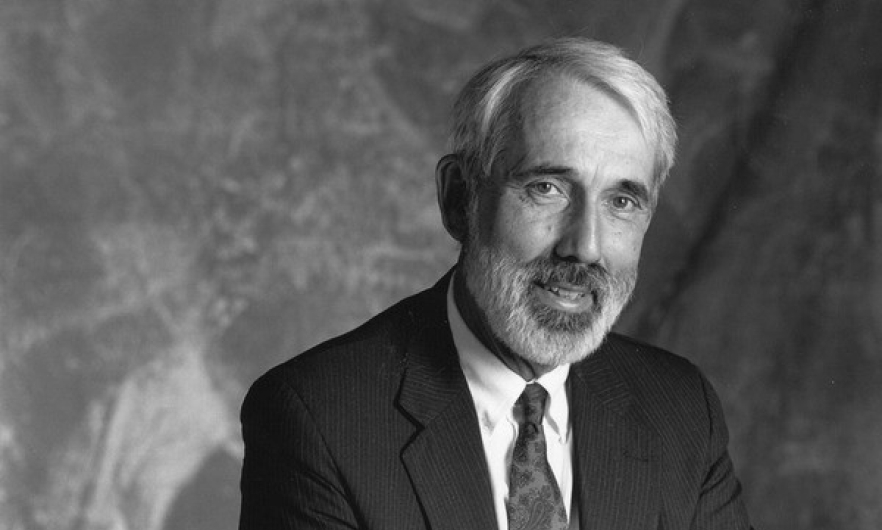Curtis Meinert, Founding Director of the Johns Hopkins Center for Clinical Trials, Dies at 88

Curtis Meinert, PhD, professor emeritus in Epidemiology, passed away June 13, 2023, at his home in Towson, surrounded by family. He was 88.
As founding director of the School’s Center for Clinical Trials from 1990 to 2005 and editor-in-chief of the Journal of Controlled Clinical Trials for 15 years, Curt advanced clinical trials methodology and co-authored the authoritative text Clinical Trials: Design, Conduct, and Analysis. In more than 200 publications that were cited over 11,000 times, Curt laid out the principles of quality assurance, data monitoring, design, and evaluation that ensure the accuracy and power of clinical trials as moderators of scientific inquiry. He also advocated for the highest ethical standards governing both researchers and the protection of human participants.
As an adviser to the Institute of Medicine, NIH, WHO, FDA, and the Federal Trade Commission, Curt influenced the evaluation of treatments for high cholesterol, migraine headaches, alcoholism, obesity, macular degeneration, glaucoma, cerebral palsy in infants, cervical cancer, liver cancer, depression, Alzheimer’s disease, and asthma.
In the late 1990s, as chair of the Data and Safety Monitoring Committee for the follow-up trial of oltipraz as a modulator of aflatoxin biomarkers, Curt was instrumental in one of the School’s signal achievements: research in the Department of Environmental Health Sciences (now Environmental Health and Engineering) that oltipraz, in drug form or in foods such as broccoli, could alter the way the body metabolized aflatoxin, a known cause of liver cancer.
Curt was also an essential member of several influential collaborative clinical trials and research groups, including the Studies of the Ocular Complications of AIDS; Coronary Drug Project; University Group Diabetes Program; Coordinating Center Models Project; Hypertension Prevention Trial; Diabetic Retinopathy Research Group; National Emphysema Treatment Trial; Childhood Asthma Management Program; Glaucoma Laser Trial; Macular Photocoagulation Study Group; and AIDS Clinical Trials Group.
Curt was known for his puckish sense of humor, evident in publication titles such as, “Masked monitoring in clinical trials - Blind stupidity?” and the series of talks, “So you want to be a [researcher, clinical trialist, etc.], do you?”
Curt earned three degrees from the University of Minnesota, Twin Cities: a BA in psychology in 1956, an MSc in biostatistics in 1959, and a PhD in biostatistics in 1964. From 1962 to 1978, he served on the medical faculty of the University of Maryland, Baltimore, in the Institute of International Medicine and Department of Epidemiology and Preventive Medicine. After serving as acting chair of that department in his last year, he came to the School as a professor of epidemiology in 1979 with a joint appointment in biostatistics.
Curt was a visionary who, in the 1970s, foresaw the importance of computing and multicenter collaboration as pillars of the modern clinical trial, which together would vastly expand the number of participants and statistical significance of randomized controlled clinical trials.
Curt was an elected fellow of the American College of Epidemiology, American Heart Association, American Association for the Advancement of Science, and Society for Clinical Trials. He received the American Public Health Association's Statistics Section Award twice, in 1991 and 2006.
A dynamic figure and pioneering thinker, Curt made a lasting impact on our School and on the field. His life and career were an inspiration, and we will miss him tremendously.
Ellen MacKenzie, PhD, ScM
Dean and Bloomberg Distinguished Professor
Bloomberg School of Public Health
